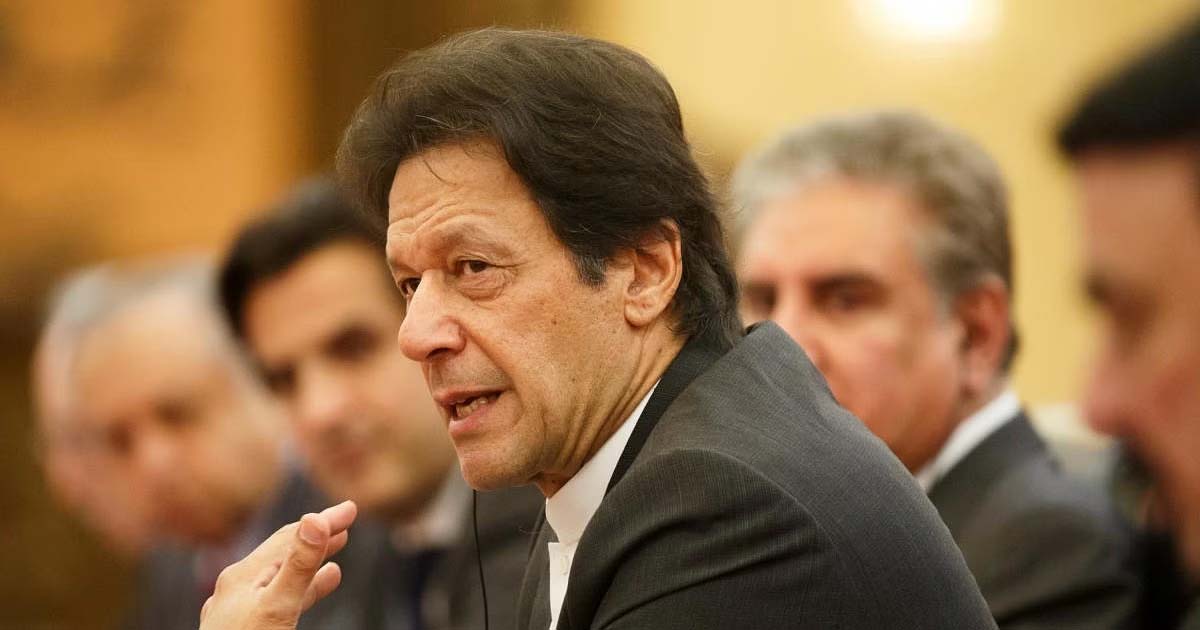In the heart of Islamabad, the echoes of Pakistan’s political turmoil reverberate. Imran Khan, once the country’s premier, now finds himself behind bars, but his voice resonates with demands for justice. He calls for high treason proceedings against those who orchestrated the theft of his party’s electoral victory, enabling rival factions to seize power through dubious means. Khan’s impassioned words spilled forth during a press briefing following the Al-Qadir Trust corruption case hearing, where the involvement of his wife Bushra Bibi, aide Farah Gogi, and real estate mogul Malik Riaz was under scrutiny.
The backdrop to Khan’s outcry is the tainted canvas of the February 8 elections, tainted by allegations of widespread electoral fraud. Despite the Pakistan Tehreek-e-Insaf (PTI), led by Khan, securing the majority of seats through independent candidates, the Pakistan Muslim League-Nawaz (PML-N) and the Pakistan Peoples Party (PPP) brokered a post-election alliance, claiming legitimacy in forming a coalition government.
PTI contends that the mandate rightfully belongs to them and accuses the newly-formed government of usurping power through deceitful means. Khan asserts that his party garnered over 30 million votes, dwarfing the combined tally of 17 opposing parties. He alleges irregularities and malpractices in the electoral process, which have been corroborated by international observers and non-governmental organizations.
Amidst this political maelstrom, voices of dissent rise even across international borders. Demonstrators rally outside the International Monetary Fund (IMF) headquarters in the United States, decrying the purported electoral manipulation. Khan, though endorsing the protest, distances himself from anti-military sentiments expressed by some demonstrators. He bemoans the denial of PTI’s electoral symbol and the alleged disenfranchisement of other parties, calling for accountability and justice against those responsible for subverting the democratic process.
Khan’s rhetoric escalates as he invokes constitutional provisions, equating the theft of electoral mandate with treason. He vows to challenge the Peshawar High Court’s ruling on reserved seats in the Supreme Court, emphasizing the Election Commission of Pakistan’s inability to reallocate PTI’s rightfully earned seats.
In a legal setback for PTI, the PHC rejects a petition challenging the allocation of reserved seats, further fueling Khan’s allegations of a rigged electoral system. He lambasts the collusion between the Election Commission and the caretaker government, denouncing the upcoming Senate elections as another orchestrated spectacle.
Addressing concerns over strained relations with the incumbent government, Khan insists on fair election audits as a prerequisite for reconciliation. He critiques the government’s economic policies, rejecting accusations of mismanagement and fiscal irresponsibility. Khan argues that the economic challenges stem from inherited deficits and external debt burdens, urging the government to seek alternative solutions.
Meanwhile, amidst the legal battles and political tumult, the Al-Qadir Trust case unfolds, revealing intricate webs of corruption and influence. Khan’s presence in the courtroom underscores the gravity of the allegations, as proceedings adjourn to March 20, leaving the nation gripped in uncertainty and anticipation.









